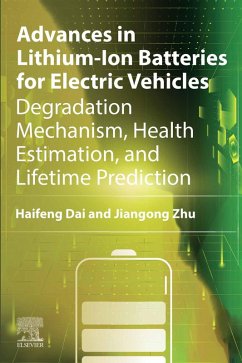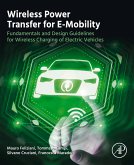Advances in Lithium-Ion Batteries for Electric Vehicles: Degradation Mechanism, Health Estimation, and Lifetime Prediction examines the electrochemical nature of lithium-ion batteries, including battery degradation mechanisms and how to manage the battery state of health (SOH) to meet the demand for sustainable development of electric vehicles. With extensive case studies, methods and applications, the book provides practical, step-by-step guidance on battery tests, degradation mechanisms, and modeling and management strategies. The book begins with an overview of Li-ion battery aging and battery aging tests before discussing battery degradation mechanisms and methods for analysis. Further methods are then presented for battery state of health estimation and battery lifetime prediction, providing a range of case studies and techniques. The book concludes with a thorough examination of lifetime management strategies for electric vehicles, making it an essential resource for students, researchers, and engineers needing a range of approaches to tackle battery degradation in electric vehicles.
- Evaluates the cause of battery degradation from the material level to the cell level
- Explains key battery basic lifetime test methods and strategies
- Presents advanced technologies of battery state of health estimation
Dieser Download kann aus rechtlichen Gründen nur mit Rechnungsadresse in A, B, BG, CY, CZ, D, DK, EW, E, FIN, F, GR, HR, H, IRL, I, LT, L, LR, M, NL, PL, P, R, S, SLO, SK ausgeliefert werden.









